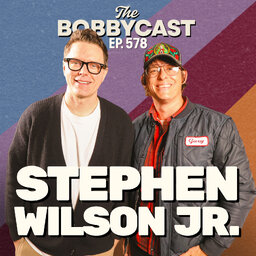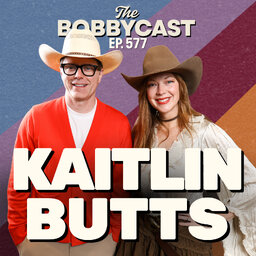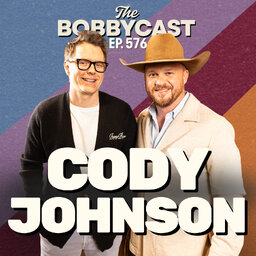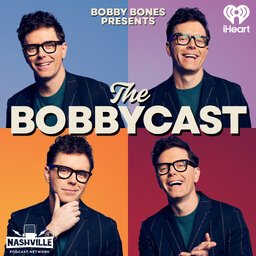#460 - Robert Earl Keen on Memorizing Every President's Birthday + His Love Of Poetry
Americana and Texas legend, Robert Earl Keen, joined Bobby Bones for a one-on-one interview at his house. It's been three decades since Robert released his debut album and has put out 20+ since. He also opens up about why after 41 years of touring he's deciding to retire from the road. He shares the approach he took making his new album, Western Chill, and the graphic novel he released for it. Robert also talks about his love for poetry and songwriting and reveals a certain part of history he knows every detail of and more!
Follow on Instagram: @TheBobbyCast
Follow on TikTok: @TheBobbyCast
Watch this Episode on Youtube
In 1 playlist(s)
Bobbycast
Bobby Bones hosts the biggest names in country music, pop culture and more from his studio in Nashvi…Social links
Follow podcast
Recent clips

#578 - Stephen Wilson Jr. on Going from Scientist to Musician and Turning Tragedy Into Art
1:08:02

#577 - Kaitlin Butts on “You Ain’t Gotta Die” Going Viral + Stage Vulnerability
1:04:11

#576 - Cody Johnson on Ear Injury Recovery, Rodeo Life & What Prison Is Really Like
56:45
 Bobbycast
Bobbycast